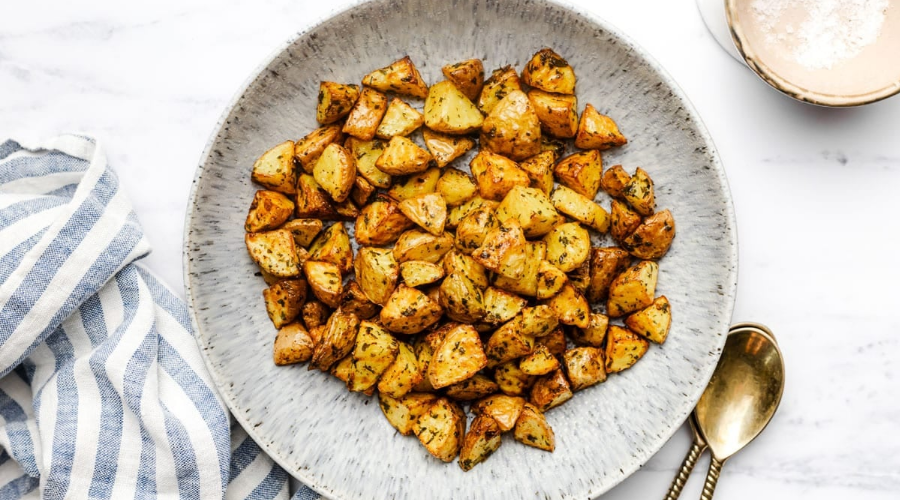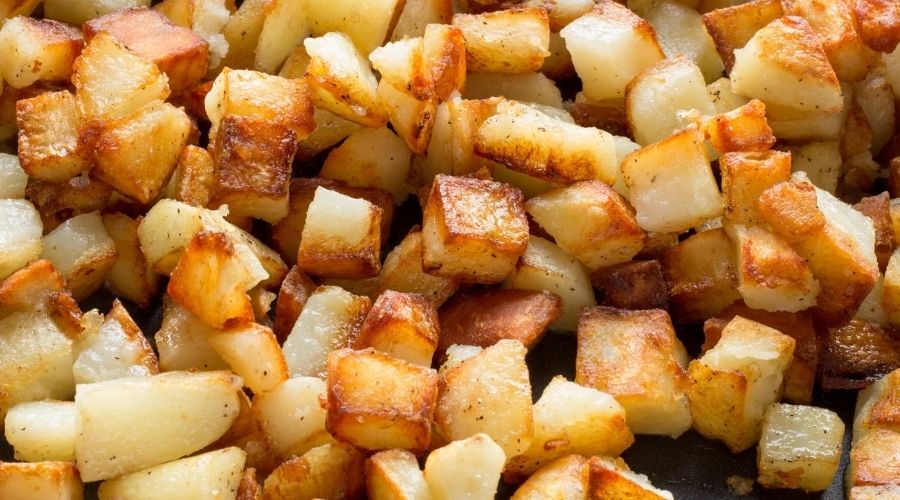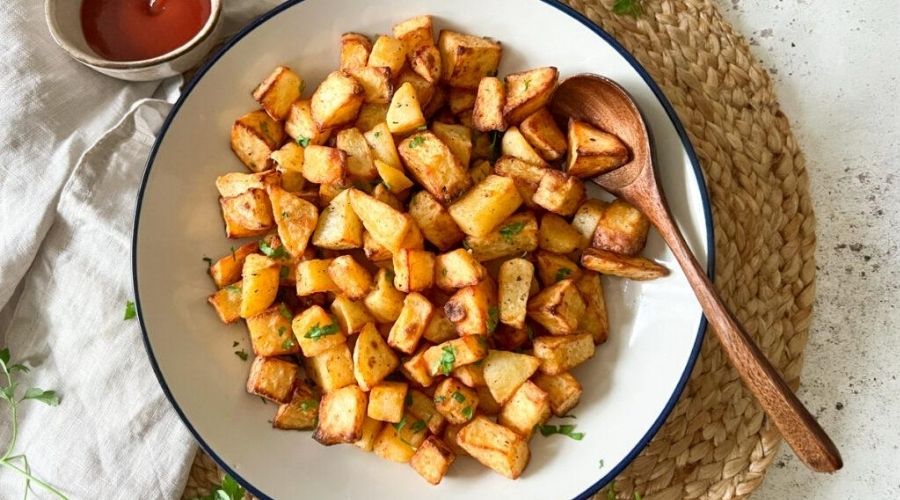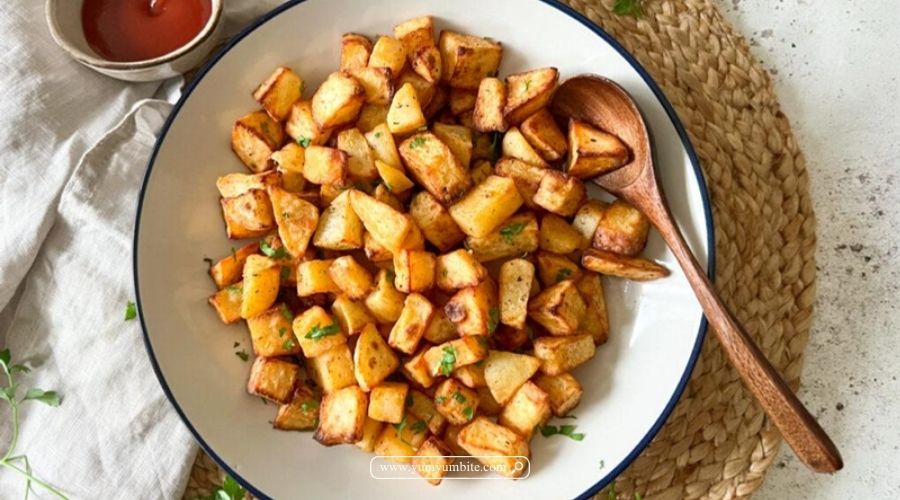Cooked diced potatoes are a versatile ingredient that can enhance a variety of dishes, from salads to casseroles.
However, knowing how to store them properly is essential to maintain their flavor and freshness while preventing spoilage.
Improper storage can lead to mushy textures and off-putting odors, making your culinary creations less enjoyable.
Whether you’re meal prepping for the week or simply have leftovers from dinner, understanding the best practices for storing cooked diced potatoes will help you enjoy their deliciousness for days to come.
In this article, we’ll explore effective storage methods, tips for reheating, and signs to watch for to ensure your cooked diced potatoes remain safe and scrumptious.
Why Storing Cooked Diced Potatoes Properly Matters
Storing cooked diced potatoes properly is crucial for maintaining their flavor, texture, and nutritional value.
Potatoes are a versatile ingredient, often used in various dishes, from salads to casseroles. However, they can spoil quickly if not stored correctly, leading to waste and potential foodborne illnesses.
Proper storage techniques help preserve their natural taste and prevent them from becoming mushy or developing an unpleasant odor.
Additionally, cooked diced potatoes can be a time-saver for meal prep, allowing you to enjoy quick and easy meals throughout the week.
By ensuring that you store them in a cool, dry place, using airtight containers, and adhering to recommended storage times, you can enjoy delicious and safe potato dishes whenever you desire.
In essence, taking the time to store cooked diced potatoes properly enhances your cooking experience and contributes to a more efficient kitchen.
How to Store Cooked Diced Potatoes: A Complete Guide

Storing cooked diced potatoes correctly is essential for preserving their flavor and texture while preventing spoilage.
Here’s a step-by-step guide to help you store your cooked potatoes effectively.
1. Cool the Potatoes Quickly
After cooking, allow the diced potatoes to cool down to room temperature. To speed up the cooling process, spread them out on a baking sheet in a single layer.
This prevents condensation and helps maintain their texture.
2. Choose the Right Storage Container
Select an airtight container to store your cooked diced potatoes. Glass containers or BPA-free plastic containers with tight-fitting lids work well to prevent air exposure and moisture loss.
3. Portioning for Convenience
If you plan to use the potatoes in different meals, consider dividing them into smaller portions.
This makes it easier to reheat only what you need, minimizing the number of times the remaining potatoes are exposed to air.
4. Label and Date Your Storage
Always label your containers with the date of storage.
This helps you keep track of how long the potatoes have been stored, ensuring you use them within a safe timeframe.
5. Refrigeration
For short-term storage, place the airtight container in the refrigerator. Cooked diced potatoes can be safely stored in the fridge for up to 3-5 days.
Ensure your refrigerator is set to below 40°F (4°C) for optimal preservation.
6. Freezing for Long-Term Storage
If you want to store cooked diced potatoes for a longer period, freezing is the best option. Place the cooled potatoes in a single layer on a baking sheet to freeze them individually first.
Once frozen, transfer them to a freezer-safe bag or container, removing as much air as possible. Cooked diced potatoes can be frozen for up to 3-6 months.
7. Reheating Tips
When you’re ready to use your stored potatoes, reheat them gently to maintain their texture.
You can reheat them in the microwave, on the stovetop, or in the oven. If using the microwave, add a little moisture, like a splash of water, to keep them from drying out.
8. Check for Signs of Spoilage
Before using stored potatoes, always check for any signs of spoilage, such as an off smell, discoloration, or a slimy texture.
If you notice any of these signs, it’s best to discard the potatoes.
By following these guidelines, you can effectively store cooked diced potatoes, ensuring they remain delicious and safe to eat for your future meals!
What to Look for While Storing Cooked Diced Potatoes

When storing cooked diced potatoes, several key factors can help ensure their freshness, flavor, and safety.
Here’s what to consider:
1. Cooling Process
Ensure that the cooked diced potatoes cool down quickly to room temperature before storing.
This prevents condensation from forming, which can lead to spoilage. Aim to cool them within two hours of cooking to minimize the risk of bacterial growth.
2. Quality of Storage Containers
Use high-quality, airtight containers for storage. Glass containers or BPA-free plastic with secure lids are ideal, as they protect against air exposure and moisture loss.
Avoid using containers that are cracked or damaged, as these can compromise the seal.
3. Proper Wrapping
If you’re using plastic wrap or aluminum foil to cover the potatoes, make sure they are wrapped tightly to minimize air exposure.
This added layer of protection helps keep the potatoes fresh and prevents them from absorbing odors from other foods.
4. Portion Control
Consider portioning the cooked diced potatoes into smaller servings if you plan to use them in different meals.
This not only makes reheating more convenient but also reduces the number of times the remaining potatoes are exposed to air.
5. Labeling and Dating
Always label your storage containers with the date of storage. This practice helps you keep track of how long the potatoes have been stored and ensures you consume them while they’re still fresh.
6. Refrigeration Temperature
Check that your refrigerator is set to below 40°F (4°C). This is essential for slowing down bacterial growth and preserving the quality of your cooked diced potatoes.
7. Signs of Spoilage
Before storing, inspect the cooked potatoes for any signs of spoilage, such as an off smell or discoloration. Discard any potatoes that show these signs, as they can affect the quality of the remaining food.
8. Avoid Strong Odors
Store cooked diced potatoes away from strong-smelling foods to prevent them from absorbing undesirable odors. This helps maintain their natural flavor and freshness.
By paying attention to these factors when storing cooked diced potatoes, you can ensure they remain safe, flavorful, and ready to use in your favorite dishes!
How to Choose the Right Accessories for Storing Cooked Diced Potatoes

Selecting the appropriate accessories for storing cooked diced potatoes is essential for maintaining their freshness, flavor, and safety.
Here’s a guide to help you make the best choices:
1. Airtight Containers
Opt for high-quality airtight containers made of glass or BPA-free plastic. These containers help prevent air exposure, which can cause the potatoes to dry out and lose flavor.
Glass containers are particularly advantageous as they do not retain odors and are microwave-safe for easy reheating.
2. Heavy-Duty Freezer Bags
For long-term storage, consider using heavy-duty freezer bags. These bags are designed to withstand low temperatures and minimize air exposure, reducing the risk of freezer burn.
When using freezer bags, ensure you remove as much air as possible before sealing to keep the potatoes fresh.
3. Plastic Wrap or Aluminum Foil
When wrapping individual portions of cooked diced potatoes, use plastic wrap or aluminum foil.
This additional layer of protection helps prevent moisture loss and keeps the potatoes fresh. Make sure to wrap them tightly to avoid air exposure.
4. Parchment Paper
If you plan to stack the diced potatoes, consider placing parchment paper between layers.
This prevents them from sticking together and makes it easier to separate them when you’re ready to use them.
5. Labeling Tools
Use labeling tools such as adhesive labels or a permanent marker to clearly mark the date of storage on your containers or bags.
This practice helps you track how long the potatoes have been stored, ensuring they are consumed while still fresh.
6. Cooling Racks
Before storing, use a cooling rack to allow the cooked diced potatoes to cool quickly and evenly.
This prevents condensation from forming inside the storage container, which can lead to spoilage.
7. Microwave-Safe Accessories
If you plan to reheat the potatoes, ensure that your storage containers are labeled as microwave-safe.
This allows for convenient reheating without damaging the container or affecting the quality of the food.
8. Vacuum Sealers
A vacuum sealer is an excellent investment for those who frequently store cooked diced potatoes.
This device removes air from storage bags, significantly extending the shelf life while preserving texture and flavor.
By choosing the right accessories for storing cooked diced potatoes, you can effectively preserve their quality and enjoy them in your meals for days to come!
How to Tell If Cooked Diced Potatoes Are Bad After Storing
Determining whether cooked diced potatoes are still safe to eat after storage is important for your health and enjoyment of meals. Here are key signs to look for:
1. Visual Inspection
Start by examining the potatoes for any visible signs of spoilage. Freshly stored cooked diced potatoes should appear firm and slightly glossy.
If you notice any discoloration, such as a dull or grayish appearance, or the presence of mold, it’s best to discard them.
2. Smell Test
Use your sense of smell to check for freshness. Cooked diced potatoes typically have a mild, earthy aroma.
If the potatoes emit a sour, rancid, or off-putting smell, it indicates spoilage, and you should not consume them.
3. Texture Check
Feel the texture of the diced potatoes. They should be firm and slightly moist, not slimy or mushy.
If the potatoes have developed a sticky or overly soft texture, this is a sign that they may have gone bad.
4. Check Storage Duration
Consider how long the potatoes have been stored. Cooked diced potatoes can be safely refrigerated for up to 3-5 days.
If they have been stored beyond this timeframe, it’s safer to discard them, regardless of their appearance or smell.
5. Review Storage Conditions
Evaluate how the potatoes were stored. If they were left out at room temperature for more than two hours, or if they were not kept at the appropriate refrigerator temperature, they may no longer be safe to eat.
6. Taste Test (if unsure)
If the potatoes look and smell fine but you still have doubts, conduct a small taste test. Take a tiny piece; if it tastes off or sour, spit it out and discard the rest.
By being vigilant and recognizing these signs of spoilage, you can ensure that you only consume safe and delicious cooked diced potatoes, allowing you to enjoy your meals without worry!
1. How long can I store cooked diced potatoes in the refrigerator?
Cooked diced potatoes can be safely stored in the refrigerator for up to 3-5 days. Ensure they are kept in an airtight container to maintain freshness.
2. Can I freeze cooked diced potatoes?
Yes, you can freeze cooked diced potatoes. They can be stored in the freezer for about 3-6 months. Be sure to use heavy-duty freezer bags or airtight containers to prevent freezer burn.
3. Should I let cooked diced potatoes cool before storing?
Yes, it’s important to allow cooked diced potatoes to cool to room temperature before storing them. This helps prevent condensation inside the storage container, which can lead to spoilage.
4. What’s the best way to reheat stored cooked diced potatoes?
You can reheat cooked diced potatoes in the microwave, on the stovetop, or in the oven. Add a splash of water when microwaving to keep them from drying out, and heat them gently to maintain texture.
5. How can I tell if stored cooked diced potatoes have gone bad?
Signs of spoilage include discoloration, an off smell, or a slimy texture. If you notice any of these signs, it’s best to discard the potatoes.
6. Is it safe to store cooked diced potatoes in aluminum foil?
While aluminum foil can be used for short-term storage, it’s better to use airtight containers or freezer bags for longer storage to prevent moisture loss and preserve quality.
7. Can I use leftover cooked diced potatoes in different recipes?
Absolutely! Leftover cooked diced potatoes are versatile and can be used in various recipes, such as salads, casseroles, or hash. Just make sure they are stored properly and still safe to eat.
Conclusion
In conclusion, storing cooked diced potatoes properly is key to preserving their taste, texture, and nutritional value.
By following the guidelines outlined in this article—such as cooling them quickly, using airtight containers, and monitoring storage durations—you can maximize their shelf life and reduce food waste.
Whether you choose to refrigerate or freeze your diced potatoes, these simple practices will help you enjoy this versatile ingredient in your favorite dishes, ensuring that every bite is as delicious as the first.
With a little care and attention, your cooked diced potatoes can remain a delightful addition to your meals for days to come!
References
- https://www.thespruceeats.com/crispy-diced-potatoes-recipe-3859590
- https://nourishedbynic.com/easy-air-fryer-diced-potatoes/
- https://kscuisine.com/oven-baked-diced-potatoes/
- https://www.spendwithpennies.com/simple-herb-oven-roasted-potatoes/
- https://cooksimply.co.uk/easy-crispy-air-fryer-diced-potatoes/


